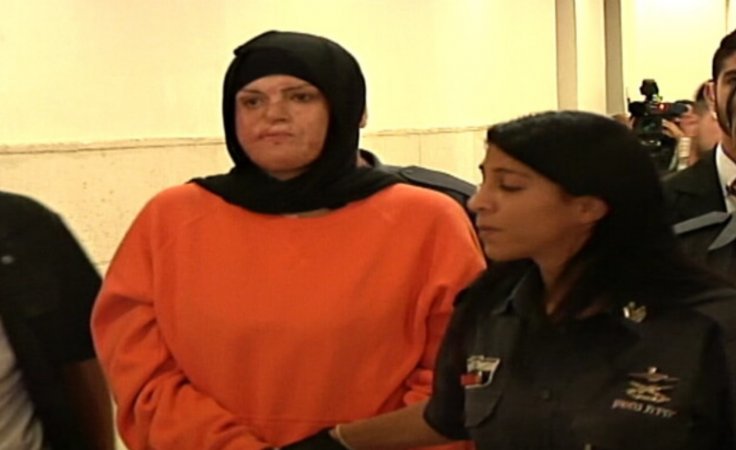A Palestinian terrorist who blew her face off in an attack is among the Palestinian prisoners slated for exchange with Israeli hostages as part of the truce agreement. However, the Palestine militant has now controversially demanded that Israel cover the costs of her plastic surgery for the damage to her face.
Asraa Jabas, 38, was seriously disfigured in 2015 when a gas cylinder exploded during an attack in the West Bank, which also resulted in a police officer getting injured. She was arrested after the attack and was sentenced to eleven years, but Jabas has stirred controversy by successfully applying twice for funding to undergo plastic surgery since her conviction.
Strange Demand in Captivity

The assault took place in the city of Ma'ale Adumim, located 18 miles from Jerusalem, resulting in the police officer involved sustaining serious burns to his face. Upon learning that she was slated for release as part of the deal, various victims' groups said they would file a petition to oppose her freedom.
According to Israeli law, when Palestinian prisoners are released as part of any agreement, their names are disclosed on the Ministry of Justice website.
Those opposed to the decision have a 24-hour window to file a claim.
Israeli media reported that Jabas is on the list of prisoners set to be released, and she has obtained two grants for plastic surgery.
However, her third application, seeking funding to rebuild her nose last year, was reportedly denied.
Authorities rejected the request for nose reconstruction, stating that, unlike the surgery to her hands, it was deemed "not necessary to maintain her health."
News reports from 2015 detailed how Jabas detonated a device near a checkpoint after 45-year-old policeman Moshe Chan, who was injured, had stopped her for behaving suspiciously.
As she came to a stop, she exited the vehicle and shouted "Allah Akbar" before detonating a concealed gas cylinder hidden in her bag.
No More Plastic Surgeries

Both were hospitalized for treatment of severe burns. Chan, who was later honored with a bravery medal, expressed surprise upon learning that she had applied for surgery. "I have post-traumatic stress disorder and this woman who caused this is in prison getting an education and now applying for cosmetic surgery," he said.
He added: "Now this terrorist wants to do surgery, what's the conclusion? Every man who is going to carry out an attack, goes to prison, earns a degree and comes out handsome too.
"The entire nation of Israel is harmed by these attacks, and the terrorists are given the entire basket of medicines.
"We are an excellent country, but in these things where a person is in prison for causing harm, so I just don't understand how a person gets both a degree and cosmetic treatment."
The list of other prisoners set to be released predominantly includes young men aged 18 or under, involved in activities such as stone-throwing and rioting in East Jerusalem and the West Bank.
National Security Minister Itamar Ben Gvir, known for his hardline stance and advocacy for introducing the death penalty for terrorists—much to the concerns of hostage families—slammed the deal.
In a post on X (formerly Twitter), he stated that the deal sets a "dangerous precedent" and "repeated past mistakes," alluding to the 2011 agreement that led to the release of Israeli soldier Gilad Shalit after he was held by Hamas for five years.
He added:' We have a moral duty to bring everyone back, and we have no right or permission to agree to the idea of separating them and only bringing some back.'
Gvir criticized the deal for not ensuring the release of all women and children, branding it "immoral, illogical, and very far from enough." He emphasized that the approach to the situation "should have been done differently."
"Hamas wanted this truce more than anything, it also wanted to get rid of the women and children in the first stage because they caused international pressure," he said.
"It wanted to get in exchange fuel, the release of terrorists and even reconnaissance flight ban. It got all of those."








